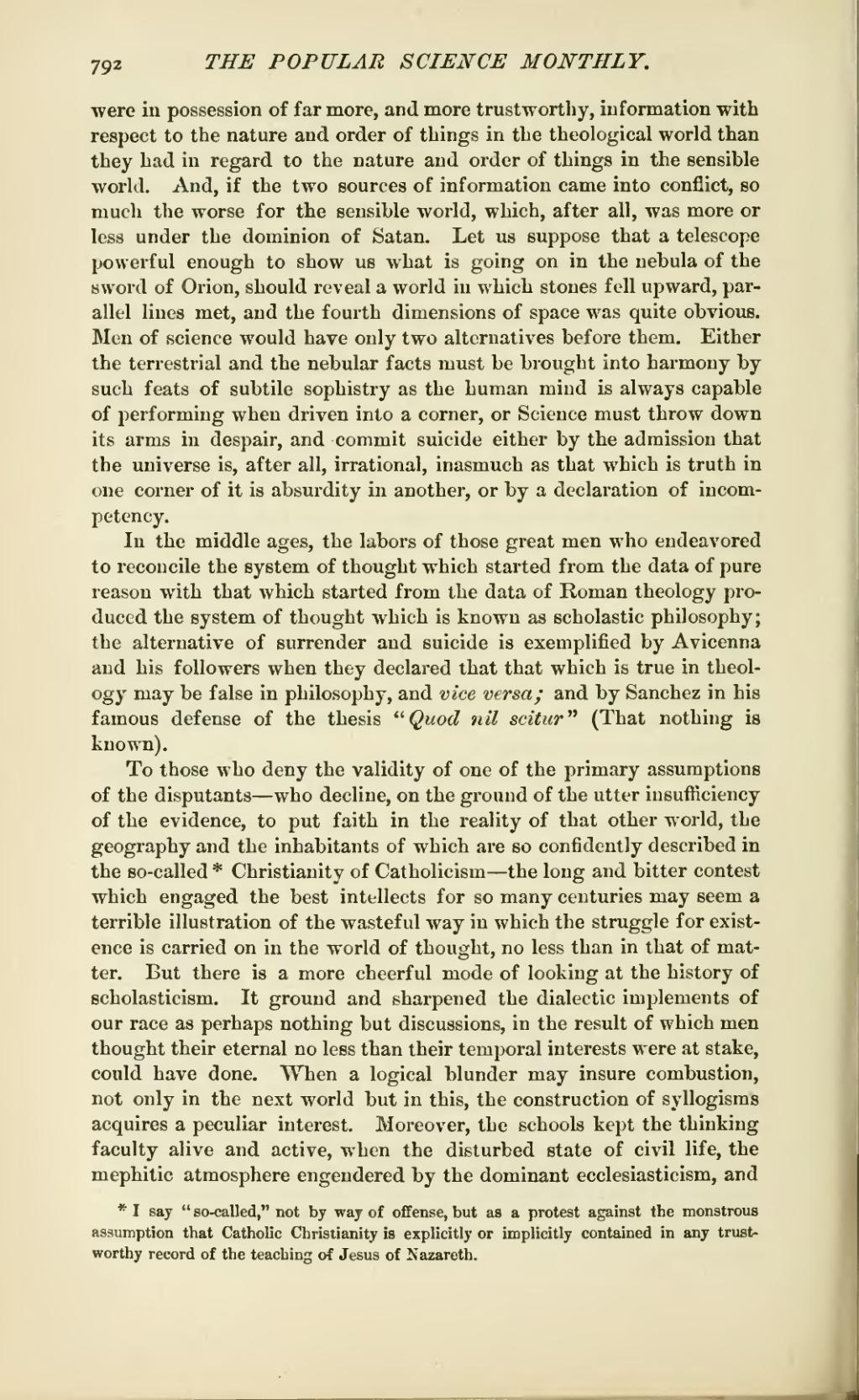were in possession of far more, and more trustworthy, information with respect to the nature and order of things in the theological world than they had in regard to the nature and order of things in the sensible world. And, if the two sources of information came into conflict, so much the worse for the sensible world, which, after all, was more or less under the dominion of Satan. Let us suppose that a telescope powerful enough to show us what is going on in the nebula of the sword of Orion, should reveal a world in which stones fell upward, parallel lines met, and the fourth dimensions of space was quite obvious. Men of science would have only two alternatives before them. Either the terrestrial and the nebular facts must be brought into harmony by such feats of subtile sophistry as the human mind is always capable of performing when driven into a corner, or Science must throw down its arms in despair, and commit suicide either by the admission that the universe is, after all, irrational, inasmuch as that which is truth in one corner of it is absurdity in another, or by a declaration of incompetency.
In the middle ages, the labors of those great men who endeavored to reconcile the system of thought which started from the data of pure reason with that which started from the data of Roman theology produced the system of thought which is known as scholastic philosophy; the alternative of surrender and suicide is exemplified by Avicenna and his followers when they declared that that which is true in theology may be false in philosophy, and vice versa; and by Sanchez in his famous defense of the thesis "Quod nil scitur" (That nothing is known).
To those who deny the validity of one of the primary assumptions of the disputants—who decline, on the ground of the utter insufficiency of the evidence, to put faith in the reality of that other world, the geography and the inhabitants of which are so confidently described in the so-called[1] Christianity of Catholicism—the long and bitter contest which engaged the best intellects for so many centuries may seem a terrible illustration of the wasteful way in which the struggle for existence is carried on in the world of thought, no less than in that of matter. But there is a more cheerful mode of looking at the history of scholasticism. It ground and sharpened the dialectic implements of our race as perhaps nothing but discussions, in the result of which men thought their eternal no less than their temporal interests were at stake, could have done. When a logical blunder may insure combustion, not only in the next world but in this, the construction of syllogisms acquires a peculiar interest. Moreover, the schools kept the thinking faculty alive and active, when the disturbed state of civil life, the mephitic atmosphere engendered by the dominant ecclesiasticism, and
- ↑ I say "so-called," not by way of offense, but as a protest against the monstrous assumption that Catholic Christianity is explicitly or implicitly contained in any trustworthy record of the teaching of Jesus of Nazareth.
